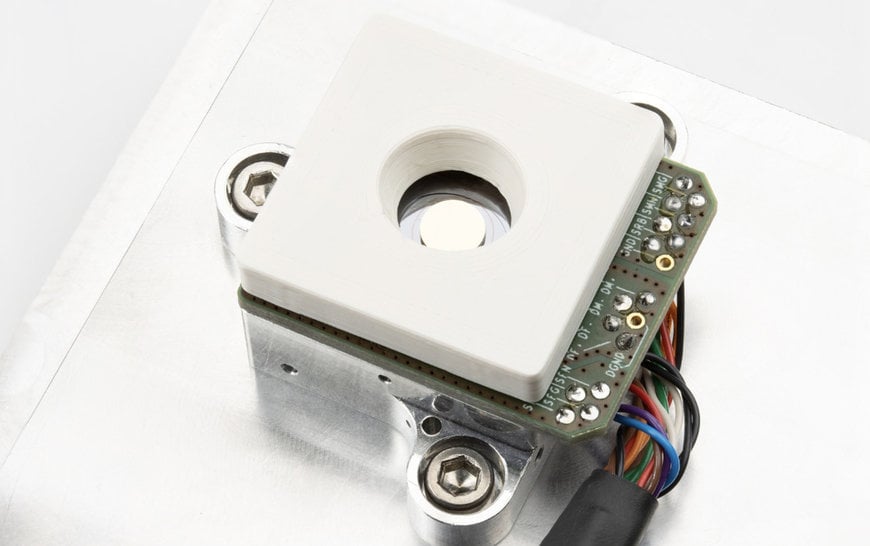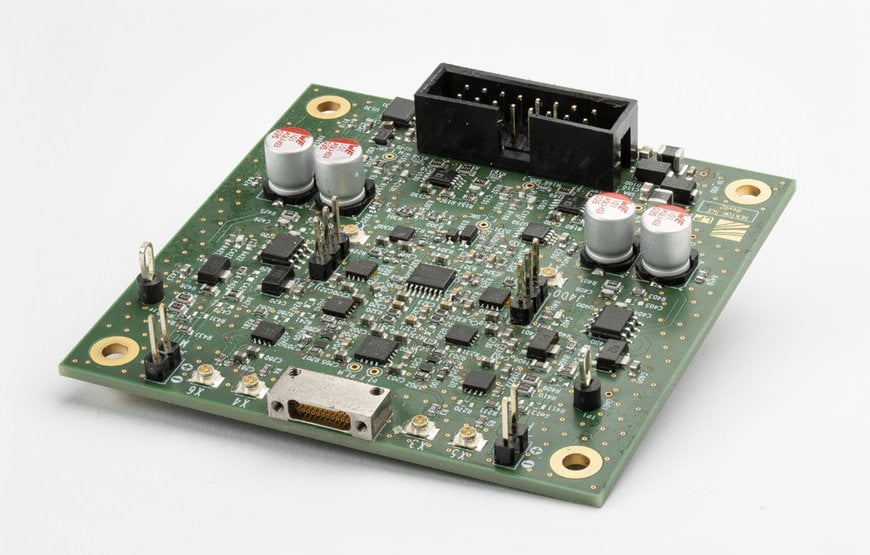www.ptreview.co.uk
20
'22
Written on Modified on
FRAUNHOFER PRESENTS INTELLIGENT SENSOR SOLUTIONS FOR INDUSTRY 4.0
The industry of the future will become more digital, more efficient and more automated. Autonomous driving systems and robots will make human work easier. To make this vision a reality, the Fraunhofer Institute for Photonic Microsystems IPMS is developing sensors, optical components and actuators based on microelectromechanical systems that detect the environment and make interaction safe. In this context, sensors are becoming key technology of digitization: they form the interface between machine and human.

Microelectronics and microsystems are key technologies and enablers for a wide range of applications. Miniaturized, intelligent and networked sensors and actuators form the basis for IoT, Industry 4.0 and numerous future applications with artificial intelligence. Fraunhofer IPMS is now presenting some of the latest research work on the topic of sensor technology at the 25th World's Leading Trade Fair for Photonics Components, Systems and Applications - LASER World of PHOTONICS in Munich from April 26 to 29.
Customized highly miniaturized MEMS scanners
Fraunhofer IPMS has many years of experience in the development and manufacture of customized, highly miniaturized MEMS scanners. The devices feature large scan angles and high scan frequencies and show excellent long-term stability. A qualified CMOS-compatible bulk micromachining process is used to manufacture 1D and 2D micro-scanners in small and medium volumes. The eye-safe demonstrator, which will be presented at LASER World of PHOTONICS, illustrates the possible operating modes of a 2D MEMS scanner with quasi-static outer axis and resonant inner axis. Applications of this technology can be found in scanning imaging, laser scanning microscopy, endoscopy, LiDAR sensor technology for autonomous driving or in head-up displays, head-mounted displays as well as AMR displays.
Presentation of the first vector scanner modules with electronics
New in the portfolio of MEMS micro-scanners of Fraunhofer IPMS are hybrid 2D vector scanner modules with an electromagnetic drive. Here, Fraunhofer IPMS builds on many years of experience in the fabrication of gimbaled, monolithic 2D MEMS-scanners and combines this with the existing know-how of MEMS micro-assembly technologies.
"This new approach significantly expands the parameter space of previous monolithic scanners. At the same time, we retain the established advantages of Fraunhofer IPMS’ MEMS-scanner technology - high optical planarity and decoupling of the scan axes through gimbal suspension as well as the fatigue-free nature of the spring elements. The new components allow 2-dimensional quasi-static deflection with larger mirror apertures as well as a high vectorial positioning speed," explains Dr. Jan Grahmann of Fraunhofer IPMS.
The module also provides the mirror position as analog signals in order to be able to realize a controlled system. The well-known additional features such as the application of a customized, highly reflective dielectric mirror coating or the realization of the mirror plate as a diffraction grating are also feasible for these components. In order to exploit the full performance of the scan module, Fraunhofer IPMS provides suitable control electronics. The required algorithms, which are finely adapted to the mechanical properties of the module, were developed at Fraunhofer IPMS and can be transferred to the digital controlof the customer's system electronics (FPGA or microcontroller). In addition, compact control electronics with a precise analog driver stage and input stages for the position signals are available. It can be addressed both analog and via a digital interface.

Quantum cascade laser with extreme resolution increase for spectrometry
Further research work at Fraunhofer IPMS addresses the detection of the environment using quantum cascade laser spectroscopy. The miniaturized quantum cascade lasers developed jointly with the Fraunhofer Institute for Applied Solid State Physics IAF cover a large wavelength range and a broad spectral tuning range at a high scan rate. The micromechanically fabricated diffraction grating developed at Fraunhofer IPMS serves as an external resonator of the variable frequency quantum cascade laser. It allows to tune the laser wavelength with selectable speed or to choose a wavelength and hold it for selectable periods of time. Spectral ranges can also be scanned without mode hopping and enable therefore a very high resolution.
Visitors to LASER World of PHOTONICS are invited to meet Fraunhofer IPMS researchers at exhibition booth #B4.239.
www.ipms.fraunhofer.com

